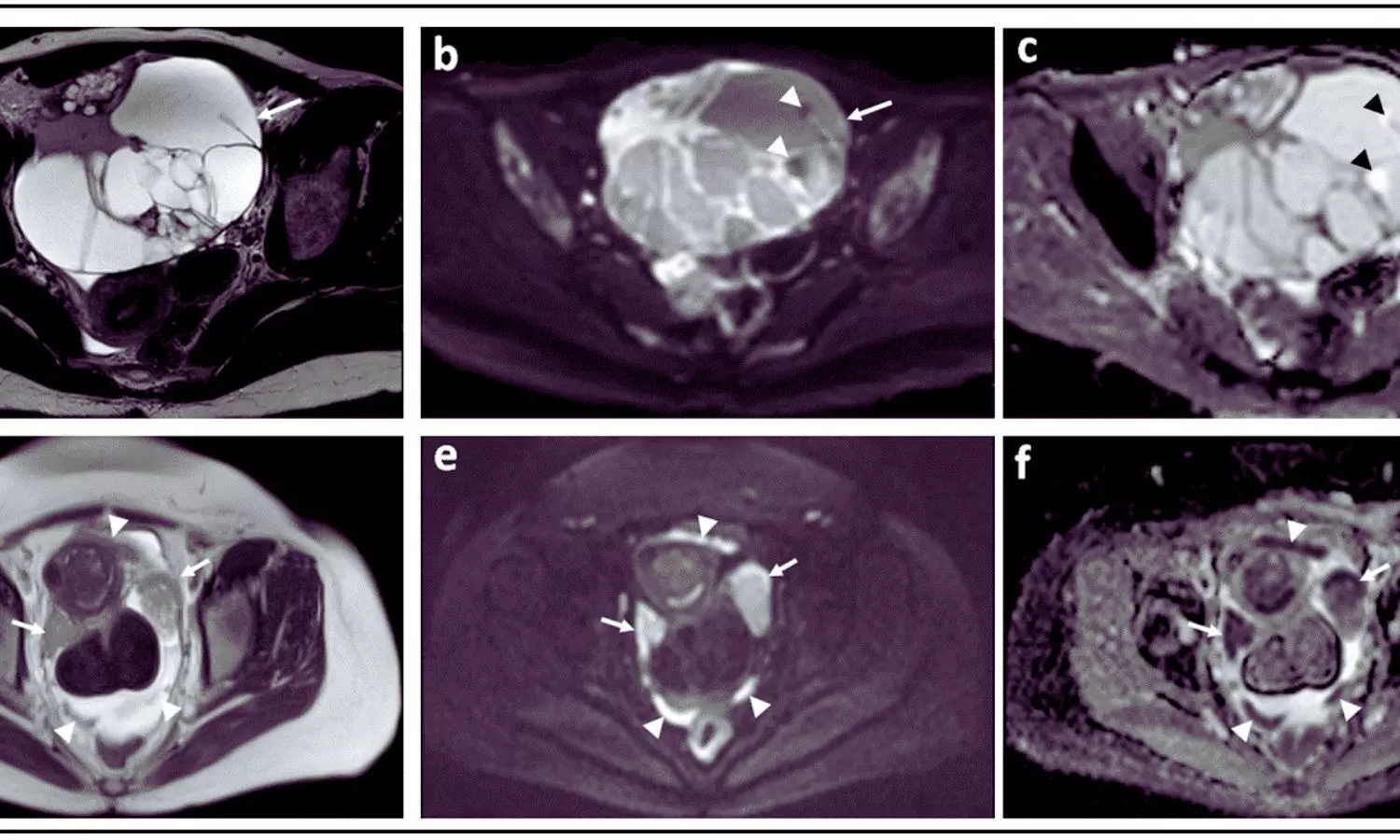- Home
- Medical news & Guidelines
- Anesthesiology
- Cardiology and CTVS
- Critical Care
- Dentistry
- Dermatology
- Diabetes and Endocrinology
- ENT
- Gastroenterology
- Medicine
- Nephrology
- Neurology
- Obstretics-Gynaecology
- Oncology
- Ophthalmology
- Orthopaedics
- Pediatrics-Neonatology
- Psychiatry
- Pulmonology
- Radiology
- Surgery
- Urology
- Laboratory Medicine
- Diet
- Nursing
- Paramedical
- Physiotherapy
- Health news
- Fact Check
- Bone Health Fact Check
- Brain Health Fact Check
- Cancer Related Fact Check
- Child Care Fact Check
- Dental and oral health fact check
- Diabetes and metabolic health fact check
- Diet and Nutrition Fact Check
- Eye and ENT Care Fact Check
- Fitness fact check
- Gut health fact check
- Heart health fact check
- Kidney health fact check
- Medical education fact check
- Men's health fact check
- Respiratory fact check
- Skin and hair care fact check
- Vaccine and Immunization fact check
- Women's health fact check
- AYUSH
- State News
- Andaman and Nicobar Islands
- Andhra Pradesh
- Arunachal Pradesh
- Assam
- Bihar
- Chandigarh
- Chattisgarh
- Dadra and Nagar Haveli
- Daman and Diu
- Delhi
- Goa
- Gujarat
- Haryana
- Himachal Pradesh
- Jammu & Kashmir
- Jharkhand
- Karnataka
- Kerala
- Ladakh
- Lakshadweep
- Madhya Pradesh
- Maharashtra
- Manipur
- Meghalaya
- Mizoram
- Nagaland
- Odisha
- Puducherry
- Punjab
- Rajasthan
- Sikkim
- Tamil Nadu
- Telangana
- Tripura
- Uttar Pradesh
- Uttrakhand
- West Bengal
- Medical Education
- Industry
Luspatercept safe, efficacious compared to ESAs for lower-risk myelodysplastic syndromes

A new study shows that Luspatercept was found to be safe and improved RBC transfusion independence and erythroid response, as well as the duration of response, compared to epoetin alfa in a clinically relevant and statistically significant way in the erythropoiesis-stimulating agent (ESA)‑naive transfusion-dependent (TD) patients with lower‑risk myelodysplastic syndromes (LR-MDS). The trial results were published in the journal American Society of Clinical Oncology.
Lower-risk myelodysplastic syndromes (MDS) are characterized by the presence of dysplasia, low bone marrow blast percentage, low number and depth of cytopenia(s), and relatively good-risk karyotypic and molecular abnormalities. Erythropoiesis-stimulating agents (ESA) are usually used as first-line therapy in these patients. As most patients with LR-MDS have poor responses to ESAs, there is an unmet need to treat anemia and minimize TD. Hence researchers conducted an open-label, randomized phase 3 COMMANDS trial, which compared the effectiveness and safety of luspatercept vs epoetin alfa in ESA-naive patients with LR-MDS.
Eligible patients who were ≥ 18 years old with IPSS-R-defined LR-MDS with or without RS, < 5% bone marrow blasts, sEPO levels < 500 U/L, required RBC transfusions (defined as 2–6 RBC units/8 weeks [wk] for ≥ 8 wk immediately before randomization), and were ESA naive were included in the study. Pts were randomly divided into 1:1 to receive subcutaneous Luspatercept at a starting dose of 1.0 mg/kg, titration up to 1.75 mg/kg) once every 3 wk or epoetin alfa (starting dose 450 IU/kg, titration up to 1050 IU/kg) weekly for ≥ 24 wk. The primary endpoint was the achievement of RBC transfusion independence (TI) ≥ 12 wk within the first 24 wk, with a mean hemoglobin increase ≥ 1.5 g/dL. Secondary endpoints included achievement of hematologic improvement-erythroid (HI-E) response ≥ 8 wk per IWG 2006 criteria, RBC-TI 24 wk and ≥ 12 wk, and safety.
Results:
- About 178 pts received luspatercept and 176 epoetin alfa, with median treatment durations of 41.6 and 27.0 wk, respectively.
- The baseline characteristics of the patients were balanced between treatment groups.
- The primary endpoint of RBC-TI 12 wk with concomitant mean Hb rise ≥1.5 g/dL during the first 24 wk was achieved by 86 (58.5%) pts receiving luspatercept versus 48 (31.2%) pts receiving epoetin alfa (P 0.0001) among 301 patients included in the efficacy analysis.
- HI-E ≥ 8 wk was achieved by 109 (74.1%) luspatercept and 79 (51.3%) epoetin alfa pts (P< 0.0001).
- RBC-TI 24 wk and ≥12 wk were obtained by 70 (47.6%) and 98 (66.7%) luspatercept pts, respectively, vs 45 (29.2%) and 71 (46.1%) epoetin alfa pts, respectively, within the first 24 wk of therapy. (P = 0.0006 and 0.0002).
- About 164 (92.1%) luspatercept and 150 (85.2%) epoetin alfa pts reported treatment-emergent adverse events (TEAEs; any grade); 8 (4.5%) and 4 (2.3%) pts discontinued due to TEAEs.
- Treatment-related AEs were reported by 54 (30.3%) luspatercept and 31 (17.6%) epoetin alfa pts. AML progression was reported in 4 (2.2%) luspatercept and 5 (2.8%) epoetin alfa pts.
- About 32 [18.0%] patients from the luspatercept group and 32 [18.2%] epoetin alfa pts reported death and overall rates of death were comparable between arms during treatment and post-treatment.
Thus, for the first time luspatercept which was found to be safe and showed clinically significant improvements proved to be superior over ESAs.
Further reading: Garcia-Manero G, et al "Efficacy and safety results from the COMMANDS trial: A phase 3 study evaluating luspatercept vs epoetin alfa in the erythropoiesis-stimulating agent (ESA)-naive transfusion-dependent (TD) patients (pts) with lower-risk myelodysplastic syndromes (LR-MDS)" ASCO 2023; Abstract 7003.
BDS, MDS
Dr.Niharika Harsha B (BDS,MDS) completed her BDS from Govt Dental College, Hyderabad and MDS from Dr.NTR University of health sciences(Now Kaloji Rao University). She has 4 years of private dental practice and worked for 2 years as Consultant Oral Radiologist at a Dental Imaging Centre in Hyderabad. She worked as Research Assistant and scientific writer in the development of Oral Anti cancer screening device with her seniors. She has a deep intriguing wish in writing highly engaging, captivating and informative medical content for a wider audience. She can be contacted at editorial@medicaldialogues.in.
Dr Kamal Kant Kohli-MBBS, DTCD- a chest specialist with more than 30 years of practice and a flair for writing clinical articles, Dr Kamal Kant Kohli joined Medical Dialogues as a Chief Editor of Medical News. Besides writing articles, as an editor, he proofreads and verifies all the medical content published on Medical Dialogues including those coming from journals, studies,medical conferences,guidelines etc. Email: drkohli@medicaldialogues.in. Contact no. 011-43720751




